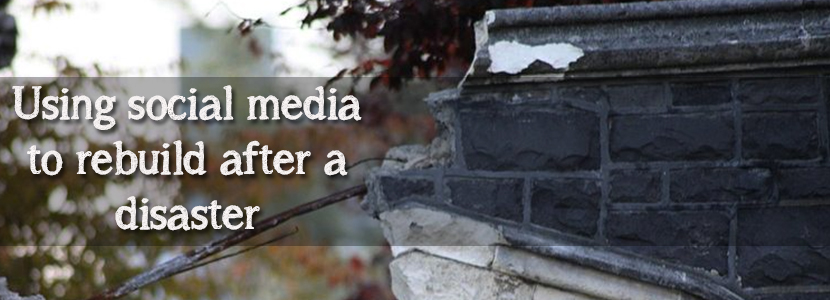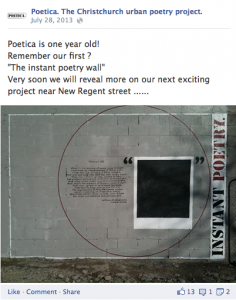How Social Media Helps Communities Heal

Without a travel guide or iPhone application, figuring out what to do in a foreign city can become quite tasking. Imagine trying to do so in a city that recently suffered through a natural disaster. Everything becomes foreign, whether you are a tourist or a local. After a natural disaster, fewer familiar places exist, making it difficult for anyone to find their way around. Christchurch, New Zealand recently suffered from an earthquake. Despite the destruction, the invisible city center still landed on the New York Times list of best places to visit in 2014.
Even as it undergoes construction, Christchurch has become a place to visit where people go to see the old and experience the new. Because of its unique disposition, locals and tourists alike rely on digital content for getting involved and interested in Christchurch.
Building Community

Online content provides an alternative space for building community. After the earthquake in Christchurch, thousands of people left their homes to live elsewhere. The physical community was fractured. Online spaces, however, give people the opportunity to communicate and interact to retain their sense of community. This allows locals and tourists to communicate and stay informed without distance becoming an issue.
Take, for example, the Poetica project, which took place in 2012. This community project utilized Facebook to unite the people of Christchurch by allowing them to vote on their favorite poems, written by Christchurch locals. Each week, locals would paint poems on a wall near the city center. Anyone could ‘like’ a photograph of a favorite poem to submit a vote.
Building Awareness
Digital content is especially important in keeping up with rapid change in a city that is recovering from a disaster. Online, the pace of social media fits the pace of the city’s growth. The Internet provides a better opportunity for quick exposure. Print and other mediums become quickly outdated and unchangeable, making the Internet more flexible and suitable for a city in transition.
Christchurch has maximized its online presence via business’ profiles on Facebook and a collaboration of upcoming events and new businesses like Neat Places or We Built This City. You simply cannot find out about the Zombie performance theater or the Chambers Sessions by using a travel guidebook. Businesses are always updating their pages, collaborative forums and websites, daily or weekly, to provide the latest information. This allows people to rely on digital content for the most up-to-date and accurate information, even in the face of the instant change that a disaster can bring. Tourists and displaced locals alike were able to keep up with the city, and stay informed of places that were still open to enjoy.
Building Interest
Through building community and building awareness, interest inevitably ensues. In fact, Christchurch’s tourism has continued to increase in recent years.
The Poetica project does not continue anymore, but the Facebook page still does. People have continued to post, like and share the original content. The Transitional Cathedral or ‘Cardboard Cathedral’ is made entirely out of repurposed materials and has become almost as popular as its historic predecessor. While rebuilding, new construction becomes an outlet for creative masterpieces. Growing interests in these places have become trends online.
Online content matters, and it can be especially critical in helping to rebuild fallen cities. The success of Christchurch’s growth transcends the city’s historic scars. During a rebuild, the city and its businesses are forced to rely on collaborations, word of mouth and social media to thrive. Through digital content, Christchurch gives people the opportunity to be involved and informed, leaving little doubt as to why one might choose Christchurch as a top destination, despite the ongoing rebuilding the city is facing.
Taylor Crouch – Content Writer



